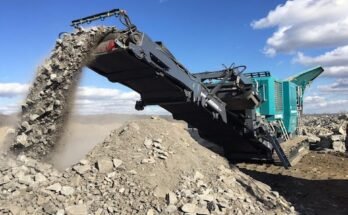Methane is a toxic gas that is often generated in nature. It is one of the most potent greenhouse gases and second to carbon dioxide when it comes to affecting the environment adversely. Apart from being found naturally, gas emission also occurs due to human activities spanning multiple industries. It helps to be careful about such emissions and take steps for reducing methane emissions as far as possible.
It is natural to be curious about the dangerous effects of methane that remains in the atmosphere. Well, it suffices to know that this particular gas has an atmospheric lifetime of 12 years which is much shorter in comparison to the villainous carbon dioxide. Unfortunately, methane can warm the climate rapidly and needs to be reduced considerably to ensure cleaning up the atmosphere.
Need For Reducing Methane Emissions NOW
Well, the human race cannot afford to sit back and relax while the greenhouse gases accumulate in the atmosphere wreaking havoc with weather patterns and affecting climatic conditions. It is indeed troubling to learn about how methane gas impacts human life and livelihood at the same time. Particular areas of concern are the following:-
- Climate– Methane is particularly effective in driving climate change. Reducing the amount of methane in the atmosphere takes priority as its short atmospheric life has the potential to increase global warming. Steps must therefore be taken actively to reduce such effects that may cause loss of lives and property. The melting ice caps and glaciers are already a grave concern that may result in flooding worldwide. Reducing methane emissions in time may decrease such risks too.
- Health– Methane gas is the precursor of the deadly tropospheric ozone. Yes! Methane doesn’t cause harm to humans or crops but ozone can have a deadly effect on them. Statistics reveal that such ozone is responsible for over 1 million deaths caused by respiratory distress. The rise of ozone levels in the troposphere may be directly linked to methane emissions.
- Agriculture– Farmers are losing more crops each year due to high levels of ozone in the atmosphere as well as climatic changes that are caused by increasing methane emissions across the globe.
- Economic– The adverse impact of methane emissions on health, climate, and other sectors causes a loss of at least 400 million working hours. This has a severe implication for the financial sector with many industries reporting losses.
Effective solutions have been recommended by global leaders and environmentalists. The following measures are being taken successfully to decrease methane emissions across all industrial sectors:
- Improved livestock feeding strategies can reduce 20% of global methane emissions by 2030
- Intermittent aeration of continually flooded rice paddies is expected to reduce over 30% of methane emissions from rice fields
- Proper Waste management solutions will drastically reduce methane emissions and also create new jobs as well as recycle valuable resources
Reducing methane emissions from coal mining as well as the oil & gas industry may be achieved prevention of gas leakage during transmission, recovery, and storage. Orphaned gas & oil wells are also being plugged to eliminate additional emissions.



